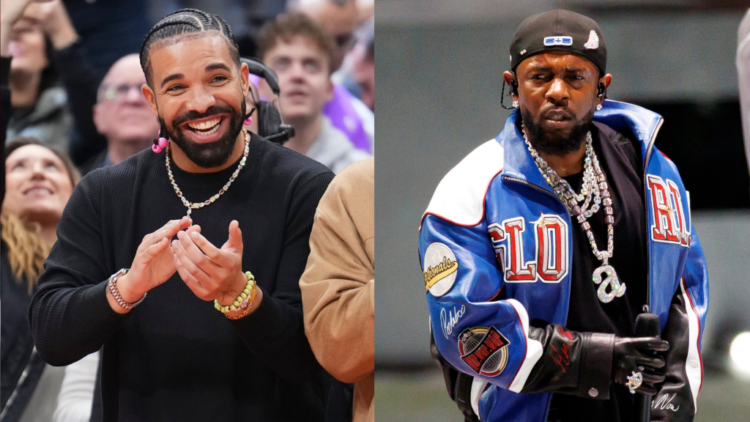A judge has granted Drake‘s legal team permission to review a previously redacted version of Kendrick Lamar‘s recording contract. This win for Drizzy comes a week after he filed a motion in federal court to gain access to the restricted documents. In the initial lawsuit, Drake’s legal team argued that UMG’s redactions made the 22-page agreement “unreadable and incomprehensible.”
A statement from Judge Jeanette Vargas of the US District Court for the Southern District of New York read, “Plaintiff and UMG’s request… for permission to file under seal a contract between UMG Recordings, Inc. and Kendrick Lamar Duckworth, as produced by UMG in redacted form with the designation Attorney’s Eyes Only, is GRANTED.”
She ruled that “UMG has made a sufficient showing that the information that he seeks to seal qualifies as confidential, ‘sensitive business information.’”
The document, though, will remain sealed from the public. Judge Vargas explained this is because “in this instance, the ‘interest in protecting confidential business information outweighs the qualified First Amendment presumption of public access.’”
The document will remain publicly protected because “the Lamar Contract reflects an ‘ongoing contractual relationship’ between UMG’s business partner and Lamar, the Court agrees that sealing the contract would best protect UMG’s ‘business relationships and interests, and the privacy interests of non-parties.’”
The contract in question is the main focal point of Drake’s case against Universal Music Group. He accused UMG of having contractual authority over the “Not Like Us” rapper’s music and intentionally releasing and promoting the aforementioned diss track.
Previous court filings show that Drake was seeking “extensive documentation” from UMG while the label called his complaint a “hundred-plus page ‘legal’ blather” that ignores his own history of songs with “equally provocative taunts against other artists.”
Despite them arguing that Drake initiated the exchange, they wrote, “Drake’s lawyers believe that when Drake willingly participates in a performative rap-battle of music and poetry, he can be ‘defamed’ even though he engages in the exact same form of creative expression. Drake’s lawyers can also keep seeking to ‘uncover’ evidence of wild conspiracies as to why one song that upset Drake had massive global appeal, but there is nothing to ‘uncover.’ Except for this: by working tirelessly in partnership with our artists, we achieve global success for them and their music.”






